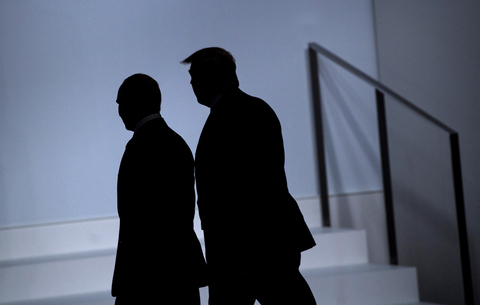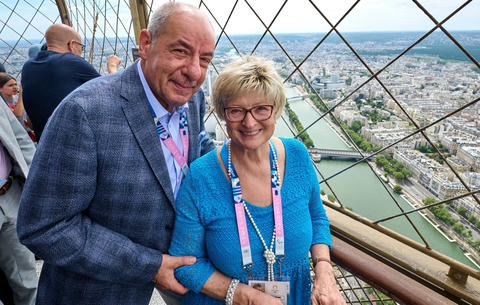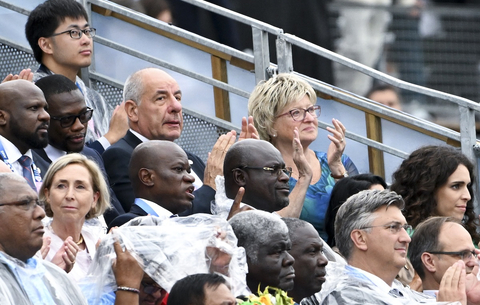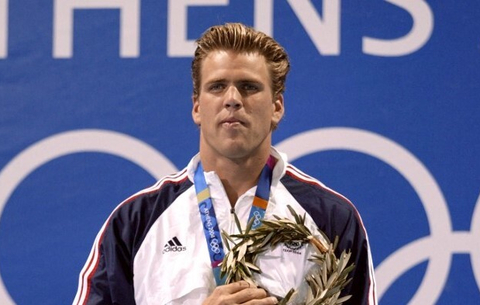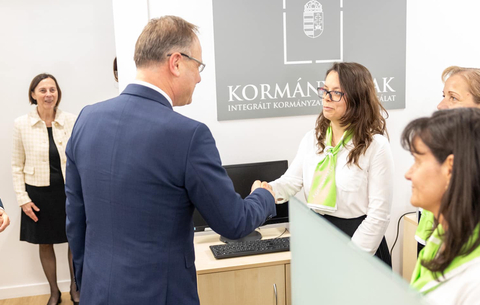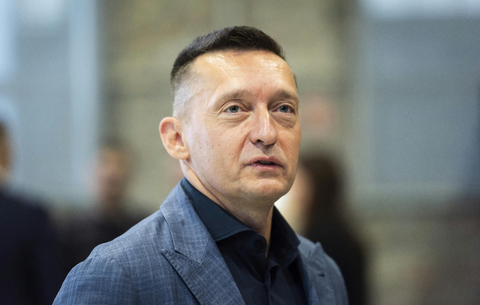Fidesz, Belvaros, Sarkozy
"Jesuit, pitbull, arrogant," - just a few of the terms of abuse that have been heaped on Antal Rogan in the past. But no longer. Following last year's parliamentary elections, he claims to have left the big political stage. Since becoming mayor of Budapest's fifth district he has been talking about the pensioners of his borough. He wants Fidesz to renew itself, he's doing deals with city mayor Gabor Demsky, and he continues to polish his image. His role model - unsurprisingly - is Sarkozy.
You've often said that being a mayor is less conflictual than parliamentary politics, that it's more constructive, and that you prefer this style of politics. For a long time, however, it looked like you enjoyed being a bruiser.
© Stiller Ákos |
So what should we expect of Mayor Rogan? Party discipline or work on behalf of your borough?
I share Fidesz's views on most issues, but if something runs against the interests of the borough of Belvaros-Lipotvaros, then I will stand up for my borough, even if this runs against my party's interests. I've said this to my party. The citizens of the Belvaros have cast a vote of confidence in me, and I have to work to justify this over coming years.
Fidesz is holding a party congress next week. What will be your role in drawing up plans for the coming years?
I want to help rethink the local authority system, and I also think it's important to introduce a kind of generational thinking. I want to put some unusual ideas on the table. I'll glad if these proposals are taken seriously, but even if they are not, they still might have some kind of effect. It involves environmental awareness, attitudes towards national commemorations, it's to do with ideologies. I think politicians of the new generation, like me, should behave differently from the political elite up until now. I hope that what I today call the new generation will become a great generation.
You once said you hoped that in 10 years' time the broad church party of the Right will not be called Fidesz but that Fidesz's politicians will play a leading role in it. What do you expect from your party?
One of the most important tasks for the moment is to act as a counterbalance. My main demand of Fidesz is that it fashion a coherent political programme out of its opposition activities over the coming years. We must state that Hungary needs stabilisation measures, and that these measures mark out a clear direction. The time has come for Fidesz to define itself more clearly. Fidesz should define some fundamental Conservative values. Even traditions can't be permanent. A party has to be able to renew itself. Many European People's Party members have successfully reinvented themselves. You just have to look at Nicolas Sarkozy.
Perhaps the reason you plan to serve two terms as mayor is that by that time all these changes will have run their course, leaving you to return to parliamentary politics inside a party that you dreamed up, one that suits you better than the current one?
There's no connection. I want to serve for eight years because that's the time I need to develop this part of the city. My dream of a city of the future can be made reality in two mayoral terms, I believe. And I don't think it's good for a mayor to get too comfortable in his position, because it can lead to stagnation.
Are you thinking of Gabor Demszky?
I don't want to hurt the mayor of Budapest. I want to work with him, but if I wanted a fight, I could find reasons for it. But it's more important that the city and the borough have agreed on a strategy to develop the Belvaros. When Gabor Demszky and I reached agreement on this, I knew very well that the city would not have the money, since it's all being spent on the fourth metro line. He may have known this too, though perhaps he was deceiving himself. At the same time, the agreement is an important guarantee for the city and for investors - it shows that the plans will go ahead regardless of election results.
One concern relates to the ministerial buildings that will fall vacant with the construction of a new government district. Is the government going to consult you on this?
I've been speaking with central government, but I don't yet know if I will be present at the negotiations. I could block the plans, but I don't want to take that approach. A constructive dialogue would be better. In extremis, of course, I could exercise the borough's right to buy the buildings.
You have the money to do that?
Everything's possible. We need innovation and development. I want to involve investors in the developments. They will add Ft40 to every Ft60 we spend. As mayor of the borough, my duty is not just to put these emptying buildings on the market but to look at them from a development perspective. I would be glad if there could be a concrete vision of what will happen if the government moves. I'm a believer in dialogue.
What of the conflicts on the borough council last autumn? Have they been resolved?
© Stiller Ákos |
It's certainly an original approach to local democracy. Maybe that's why so many people wondered why you needed a fourth vice-mayor. There were three up until now.
My predecessor had two full-time deputies and a third appointed by society at large. The latter was on half pay. I have one full-time deputy mayor and three socially appointed deputies. It costs exactly the same.
Your the mayor of the most prominent borough in Hungary. Why didn't you take the same job in the village of your birth near Szakonyfalu on the Austrian border? A few years ago you were prepared to consider it.
I've lived in Budapest since 1990. I studied here, I started work here, it was here that I fell into politics. My birthplace's affairs should be run by people who are familiar with local issues.
In 2003, you were still worried about a tabloidisation of politics. More recently you termed yourself and some of your political allies "celebs".
© Stiller Ákos |
But many think this dangerous, since most people - as we saw following the most recent elections - have no idea what is happening around them and why.
It's as important for people to know a candidate's programme as it is for them to know that candidate's personality. Then they can decide if they believe the candidate's claims. As Nixon said: "Would you buy a used car from this man?"
It sounds like you're consciously planning for the future. Would you like to be president of Fidesz one day?
As a foolish young man I said I'd like to be party president one day, but it's no longer necessarily one of my ambitions.
You're clearly a fool no longer. But you're not ruling it out.
I've seen party presidents up close, as well as ministers and prime ministers. I'm not envious of their lifestyles, and I've also learned that it's not about ambition, but about being able to meet the demands of public life.
A last, tabloid, question. Who is your role model?
I won't name Hungarian role model, but I'm happy to mention a few western European names. Nicolas Sarkozy has done a lot to define what France is in the 21st century. He was bold enough to think differently, whether from his own party or from the whole of the French political elite. He marked out a new path, which is a great political achievement. People have to work out what can be changed. I admire and envy Nicolas Sarkozy's achievement.
Andrea Kovács

